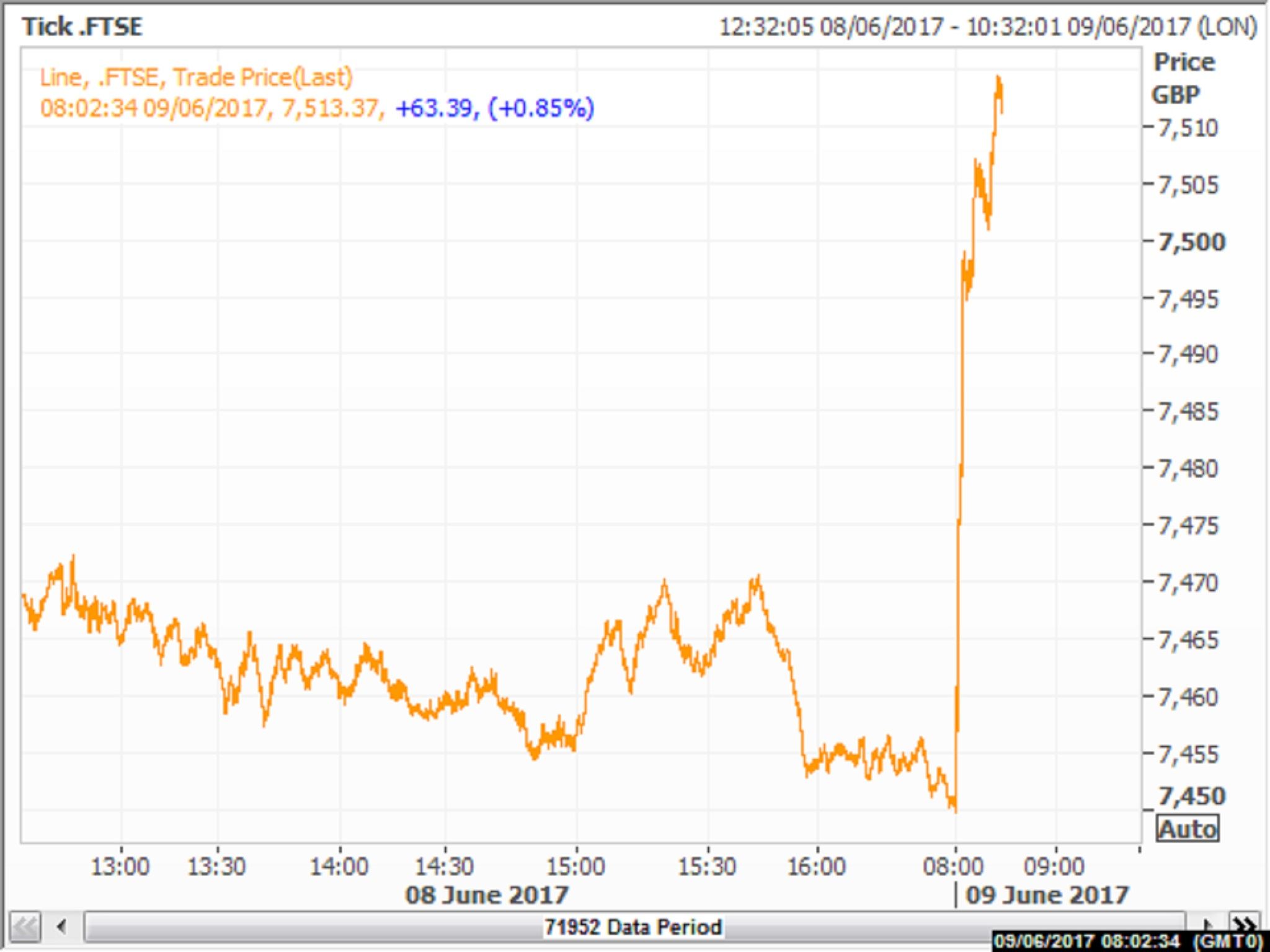FTSE 100 rises as pound falls on shock election result
Markets had priced in a widely expected Tory majority but no party could secure enough seats to form a government on their own

The FTSE 100 rose on Friday as the pound fell more than 2 per cent against the dollar in the wake of the UK’s general election resulting in a hung parliament.
The UK’s blue chip share index jumped 1.3 per cent shortly after the stock market opened and closed 1 per cent higher at 7,527.33.
Many of the companies on the index are internationally focused and so receive a profit boost when their overseas revenues are converted into the weakened pound.
The FTSE 250 index, which includes smaller companies with more of a UK focus, closed marginally higher at 19,769.96.
Markets had largely priced in a Tory majority and major investors described Friday’s outcome as a shock result. Some said the pound would likely remain under severe pressure in the coming weeks, which in turn would support stocks.
“Given the lack of clarity on domestic policy and the impact on the Brexit negotiations, we expect sterling to remain soft. This should remain supportive of the equity market, under a Conservative minority outcome,” said Caroline Simmons, deputy head of the UK investment office at UBS Wealth Management.
But others were more cautious on equities.
Tom Stevenson, investment director for personal investing at Fidelity International, said that while the weak pound had indeed provided a boost to the FTSE 100 for now, that was largely “against a backdrop of a more robust economy than anyone expected after the Brexit vote”.
“Looking ahead, the FTSE 100 will struggle to progress even with the tailwind of weak sterling’s boost to exporters and overseas earners ... we continue to prefer European equities to the UK market.”
General Election 2017: Big beasts who lost their seats
Show all 7Samuel Tombs, of Pantheon Macroeconomics, said the prospect of another election would also likely mean further volatility ahead for all UK assets.
“Still, the inconclusive election result will be an unhelpful influence at a time when quarter-on-quarter GDP growth already has dropped this year to 0.2 per cent, the slowest rate in the G7,” he said.
Subscribe to Independent Premium to bookmark this article
Want to bookmark your favourite articles and stories to read or reference later? Start your Independent Premium subscription today.

Join our commenting forum
Join thought-provoking conversations, follow other Independent readers and see their replies